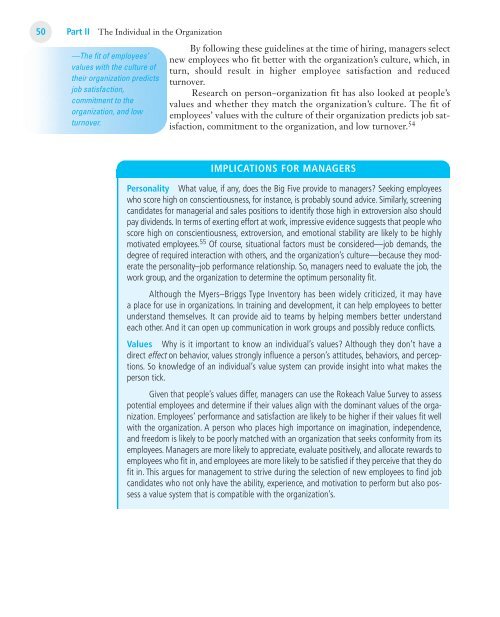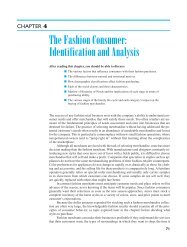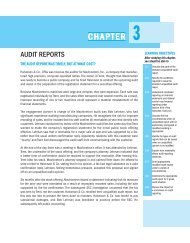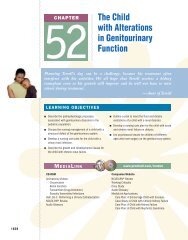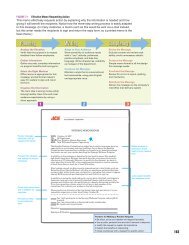Personality and Values Our
Personality and Values Our
Personality and Values Our
Create successful ePaper yourself
Turn your PDF publications into a flip-book with our unique Google optimized e-Paper software.
50 Part II The Individual in the Organization<br />
—The fit of employees’<br />
values with the culture of<br />
their organization predicts<br />
job satisfaction,<br />
commitment to the<br />
organization, <strong>and</strong> low<br />
turnover.<br />
By following these guidelines at the time of hiring, managers select<br />
new employees who fit better with the organization’s culture, which, in<br />
turn, should result in higher employee satisfaction <strong>and</strong> reduced<br />
turnover.<br />
Research on person–organization fit has also looked at people’s<br />
values <strong>and</strong> whether they match the organization’s culture. The fit of<br />
employees’ values with the culture of their organization predicts job satisfaction,<br />
commitment to the organization, <strong>and</strong> low turnover. 54<br />
IMPLICATIONS FOR MANAGERS<br />
<strong>Personality</strong> What value, if any, does the Big Five provide to managers? Seeking employees<br />
who score high on conscientiousness, for instance, is probably sound advice. Similarly, screening<br />
c<strong>and</strong>idates for managerial <strong>and</strong> sales positions to identify those high in extroversion also should<br />
pay dividends. In terms of exerting effort at work, impressive evidence suggests that people who<br />
score high on conscientiousness, extroversion, <strong>and</strong> emotional stability are likely to be highly<br />
motivated employees. 55 Of course, situational factors must be considered—job dem<strong>and</strong>s, the<br />
degree of required interaction with others, <strong>and</strong> the organization’s culture—because they moderate<br />
the personality–job performance relationship. So, managers need to evaluate the job, the<br />
work group, <strong>and</strong> the organization to determine the optimum personality fit.<br />
Although the Myers–Briggs Type Inventory has been widely criticized, it may have<br />
a place for use in organizations. In training <strong>and</strong> development, it can help employees to better<br />
underst<strong>and</strong> themselves. It can provide aid to teams by helping members better underst<strong>and</strong><br />
each other. And it can open up communication in work groups <strong>and</strong> possibly reduce conflicts.<br />
<strong>Values</strong> Why is it important to know an individual’s values? Although they don’t have a<br />
direct effect on behavior, values strongly influence a person’s attitudes, behaviors, <strong>and</strong> perceptions.<br />
So knowledge of an individual’s value system can provide insight into what makes the<br />
person tick.<br />
Given that people’s values differ, managers can use the Rokeach Value Survey to assess<br />
potential employees <strong>and</strong> determine if their values align with the dominant values of the organization.<br />
Employees’ performance <strong>and</strong> satisfaction are likely to be higher if their values fit well<br />
with the organization. A person who places high importance on imagination, independence,<br />
<strong>and</strong> freedom is likely to be poorly matched with an organization that seeks conformity from its<br />
employees. Managers are more likely to appreciate, evaluate positively, <strong>and</strong> allocate rewards to<br />
employees who fit in, <strong>and</strong> employees are more likely to be satisfied if they perceive that they do<br />
fit in. This argues for management to strive during the selection of new employees to find job<br />
c<strong>and</strong>idates who not only have the ability, experience, <strong>and</strong> motivation to perform but also possess<br />
a value system that is compatible with the organization’s.


